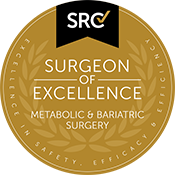Whether to Acquire Health fund vs Self Funding?
This is an aged old question which I’m sure many of you have debated about when considering how to approach weight loss surgery. The answer to this can be complex involving several key factors such as individual finances, timing/urgency of surgery and the previous experiences of love ones around you. This blog aims to address some mis-conceptions and drive knowledge to key aspects to consider when deciding on which pathway is right for you.
Here are some of the key considerations in deciding on which pathway is best suited to your needs.
Cost of bariatric surgery through either pathways
Insured pathway
- The current costs of health insurance coverage when it comes to bariatric surgery ranges between $300 to 450 AUD
- All of the insurers have a waiting period of 12 months before you can have surgery
- Expected breakdown (estimate) of overall out-of-pocket costs:
- Considering the most expensive health insurance cover – $450 —> 12 months equates to $5400
- Surgery out of pocket costs (after rebate) –> $4500 – $1000 = $3500
- Anesthetic out of pocket costs (after rebate) –> $1900 – $700 = $1200
- Hospital Excess cost –> $500-$750
- Estimated out of pocket costs –> $10000 to $11000
- Comprehensive cover without any potential additional cost regardless of complications or hospital length of stay
Self funding pathway (self paying or through superannuation)
- Weight loss surgery at SGOS would range between $14300 – 17300 AUD in total (after Medicare rebate), the range would depend on the choice of hospital suitable to you and your preference.
- May incur additional cost (even though rare)
- Paying out-of-pocket means bearing the full cost of the surgery, including any potential complications or follow-up care.
- Funding through Your Superannuation
-
- The cost of living in Australia is forever on the rise and sometimes it is just not possible to access weight loss surgery any other way than to tap into your superannuation.
- It is fortunate that we in Australia can do this but you still need to be aware of the financial implications.
- Funding your surgery through superannuation means that you are still out of pocket as the financial hit tends to come close to retirement. Having less savings in superannuation means that you will have less saved up for when you stop working. If you are thinking about withdrawing from your super, it is important to plan ahead and actively work on replenishing your superannuation fund through regular contributions so that you are not left short changed later on. Before considering this option, make sure that you have considered all other possibilities, including the indications for why you are considering bariatric surgery.
-
One of the common mis-conceptions that patients have is that undergoing surgery through an insured pathway is more expensive than self-funding for bariatric surgery. If we breakdown the costs, gaining insurance for surgery actually equates to an overall saving of $3300 to $7300 depending on which private hospital you have the surgery in.
Having adequate insurance cover can also provide that extra peace of mind that all aspects of your surgery and hospital stay is covered without any possibilty of additional costs (even though rare).
Your Individual Time Line
Going down the self-funding model would often mean that you book your weight loss surgery much sooner and not have to wait the 12 months lock out period with all health funds. Here is where you need to weight up the urgency of having bariatric surgery with the potential self-funding pit falls. For some patients who are in urgent need of weight loss either to quickly alleviate obesity related health concerns or to optimise their medical health for other procedures i.e. ortheopaedic or hernia operations, waiting the 12 months may be less of a feasible option.
Having weight loss surgery is a big commitment and the decision to undergo surgery should not be made out of impulse. Waiting 12 months can often be a blessing in disguise where you have the opportunity to plan your life and start getting into healthier habits so that you are ready to maximise the effects of weight loss surgery when you eventually have it.
Here is a good article to read on tips to prepare yourself for bariatric surgery:
Adequate Health Care Safety Net

Even though complications are rare with elective weight loss surgery, there is still an element of unpredictability. Having weight loss surgery under insurance means that you are comprehensively covered for all eventualities, and this can give you an additional peace of mind. This is an aspect where self-funding for weight loss surgery can not guarantee amongst any bariatric surgeon. For the most part, surgery is predictable, but complications can happen, and this is where having insurance has an obvious advantage.
We are blessed to be in a country where we have Medicare and self-funded patients can be transferred to public hospitals for additional care if needed. There are still rare instances where this may not be possible because of the time critical nature of specific complications. One example is post operative bleeding where there is a necessity to access a quick return to theatres rather than wait for transfer.
Furthermore, having additional care through the public system may often mean longer waiting times and more unpredictability in terms of surgical expertise. This applies to long term bariatric care too where additional procedures maybe required secondary to sequaelae of surgery. A few examples of this includes the need for further endoscopy in the setting of reflux or if your gallbladder decides to play up following rapid weight loss. In these scenarios, having private health guarantees that you can can gain access to rapid health care quickly rather than through prolonged waiting lists via the public system. If possible, always consider a basic level of hospital private insurance to cover for un-anticipated eventualities if and when they occur.
If you are planning to undergo surgery through self-funding, make sure that you can accept the financial risks involved particularly (even though rare) with additional out-of pocket costs that can arise with your recovery.
A summary of considerations
- Insurance Coverage: Verify what your insurance plan covers before making a decision.
- Financial Impact: Assess your financial situation to determine if you can manage the out-of-pocket costs associated with self-funding or if the cost-sharing structure of your insurance plan is more feasible.
- Surgical Options: Research the types of bariatric surgery available and discuss with Dr. Cheng about which options are best for you, regardless of how you’re paying for it.
Ultimately, deciding on how to fund your surgery can be very much a personal choice depending on your personal financial situation, the specifics of your insurance plan, and your comfort with the available payment options. The aim of this blog post is meant to provide valuable insight into the various pathways that you can choose in funding your surgery. It is not meant to suggest one method is better than the other as your situation is unique to your own. If you are uncertain which way to go, the best course of action would be to talk to Dr. Cheng who can advise on the best and safest way in approaching bariatric surgery for you.






